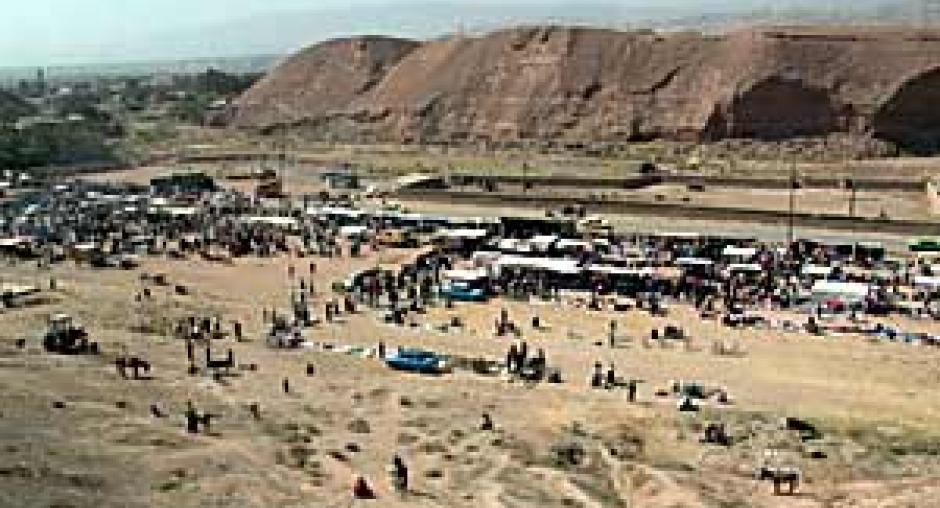Analyzing the economics of drug trafficking
Some chilling statistics
"Only one per cent of the money [?] spent by drug abusers is generated as farm income in developing countries", the International Narcotics Control Board recently stated in a press release. "The remaining 99 per cent of global illicit drug income goes to drug trafficking groups operating at various other points along the drug trafficking chain."
This is but one example of the chilling statistics on the economic impact of drug trafficking. Other data suggest that two-thirds of the profits gained in drug trafficking is reaped in developed countries, and only one-third in countries of transition. And although the economic aspects of drug trafficking largely differ between the OSCE states, it is widely accepted that its negative impact is especially high on the economies of transition countries.
Another problem closely linked to drug trafficking is the growth in the rate of HIV-infection. The dire economic and social situation in transition countries has led to an increase in drug trafficking, with increased availability and lower prices of heroin and other drugs. Practices such as needle-sharing are commonplace, and provide as a result fertile ground for the rapid spreading of HIV.
A different perspective
It is against this background that the OSCE decided to dedicate its third preparatory seminar for the 2003 Economic Forum, which will be held in May in Prague, to the phenomenon of drug trafficking.
"Too often the discussion about the illicit trade of drugs is reduced to the law enforcement elements", says Marcin Swiecicki, the Co-ordinator of OSCE Economic and Environmental Activities. "The Tashkent seminar will focus on a different perspective: the economic fallout of drug trafficking, and this not only in the producer but also the consumer countries".
Looking at the root causes
Not only do the economic aspects vary widely but also the kind of drugs that are part of the problem. The Tashkent seminar will focus its analysis on three specific areas:
- Heroin trafficking, primarily of Afghan origin, via Central Asia, the Caucasus and south-eastern Europe to western Europe
- Trafficking of synthetic drugs
- Trafficking of so-called precursors, the basic chemical materials used to produce various drugs.
Over 100 experts invited to attend the Tashkent seminar will also try to shed more light on the economic data that constitute the backdrop of the illicit drug trade. They will analyze how drug trafficking affects the OSCE countries and their economies, in terms of the general economic climate - investment and employment - and in terms of the generated costs, through the loss of productivity and the greater need for more expensive health care programmes.
The focus of the discussions in Tashkent will be on the root causes of drug trafficking, the trafficking networks involved, the supply and demand chain of the finished product and the raw materials. All these perspectives require joint action by the 55 OSCE participating States.
In this respect, the Tashkent seminar will complement work done by other international partners, such as the European Union and the specialized agencies of the United Nations, as well as by many non-governmental organizations.

